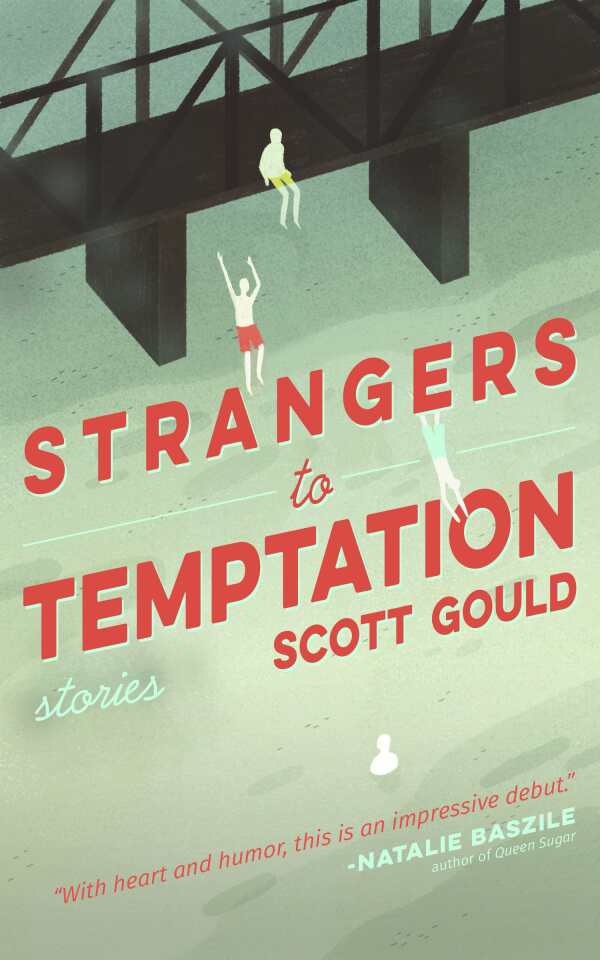Strangers to Temptation
The stories in this collection are funny, often poignant, and not easily forgotten.
The thirteen coming-of-age stories in Scott Gould’s terrific collection, Strangers to Temptation, share a common narrator remembering his teenage years in South Carolina’s Lowcountry. He’s a smart kid, but there’s a lot he doesn’t understand. Where does his father go when he leaves home for a few days? How can he get a girl to like him? The events described belong to the boy, but the wisdom is the man’s.
Characters are described with humor and compassion. In “Orbit,” Lonnie, the boy across the street, has his face reconstructed after jumping off of a bridge into the cola-colored river that runs through town. Everyone knows to wait until after a rain to jump off the bridge, but “Lonnie’s impatience overcame his good sense one afternoon that summer, and he took a Kenmore to the right side of his head.”
Family secrets and sexual awakening, and poverty and racism are threaded through the book. “Bases” illustrates an emotional truth behind segregation where hostility masks desire. The tall, black boy who throws a stone at a Little League player in the beginning of the story—a league closed to the black boys who live across the tracks—sneaks onto the field one night and plays all the positions. After hitting an imaginary home run, he rounds the bases and waves to the crowd.
The book’s title comes from the story “Mathewmarklukeandjohn.” The names of the gospels are screamed by the town’s mentally challenged boy as he arrives at Vacation Bible School where the teacher is discussing temptation. Perhaps it’s the searing heat of the hot summers, but the town’s residents feel beaten down, their wrongs smoothed over. It’s Miss Angie, the timid VBS teacher, who finds her voice and leaves town.
In “Stand-in Jesus,” the narrator’s skinny father, a Vietnam vet who returned home with only part of his stomach, annually plays the role of Jesus in the Easter play. Except this year, he plays it differently. It’s an Easter the narrator would forget if he could, but “what we remember and what we choose to forget is never up to us.”
The stories in this collection are funny, often poignant, and not easily forgotten.
Reviewed by
Karen Ackland
Disclosure: This article is not an endorsement, but a review. The publisher of this book provided free copies of the book to have their book reviewed by a professional reviewer. No fee was paid by the publisher for this review. Foreword Reviews only recommends books that we love. Foreword Magazine, Inc. is disclosing this in accordance with the Federal Trade Commission’s 16 CFR, Part 255.

